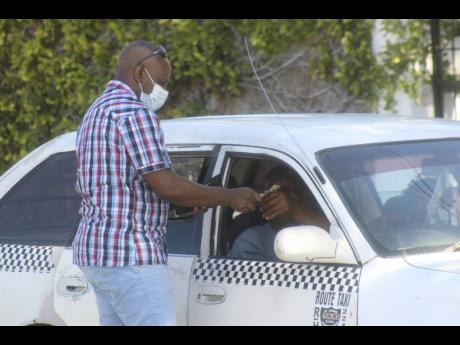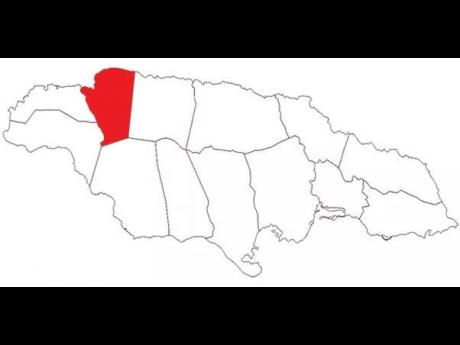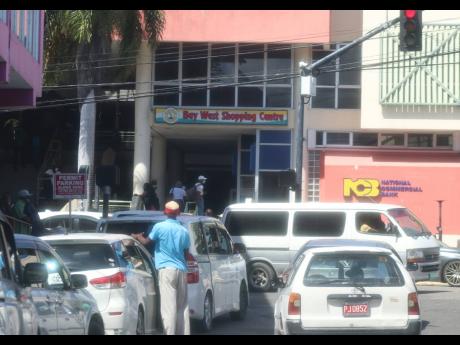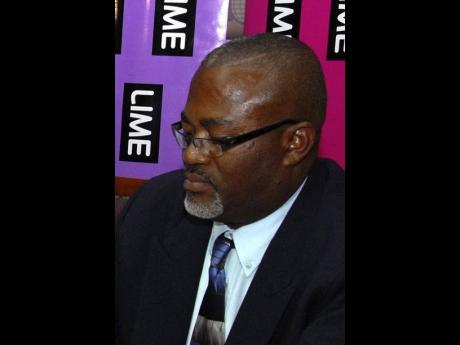A real struggle for survival
Cabbies lament hardship trying to make operations profitable
WESTERN BUREAU:
Some route taxi operators in western Jamaica are disregarding the rates set by the Transport Authority and have affixed a surcharge that the commuting public pays with very little protest.
In some instances, a Sunday Gleaner undercover investigation found that operators were demanding nearly 30 per cent more than the recommended rate, which further doubles or is left to the driver’s discretion late at nights.
A passenger travelling from Montego Bay, St James, to the upscale community of Ironshore is forced to pay $180 for the seven-kilometre trip that by law should only cost $140. And this price jumps to $500 in the late hours, plus an additional charge should one request a turn-off.
“That has been our reality over the years, but it has become the accepted norm,” Wendy Adams, a 21-year-old resident of Ironshore and final-year student, told The Sunday Gleaner. “If I have a late group study, I normally have to make a special arrangement for pick up as the service is not reliable and we are left to the mercies of the few drivers that take the risk to operate late.”
“The system is not passenger friendly,” she added.
President of the St James Taxi Association, Dion Chance, said his office is aware of a few reports of overcharging, but blames the Transport Authority for the haphazard state of affairs within the sector.
“There are some genuine cases where drivers are overcharging, but that is something for the Transport Authority to deal with,” Chance said last Thursday. “A major part of the problem is that the Transport Authority is issuing licences and not regulating with any vision.”
By Chance’s count, 4,000 to 5,000 public passenger vehicles (PPV) terminate in Montego Bay daily, but the terminal centre does not even have the capacity for 700 units.
He charged that the failure of the authorities to establish adequate facilities and control the influx of unregistered – or ‘robot’ – taxis in the system have resulted in parking violations and a continuous “cat-and-mouse game” with the police and Transport Authority officers. This, he said, fuels allegations of corruption against members of both state entities, who are seen as enablers of the chaos on the roadway.
“The facilities provided are woefully inadequate based on the number of vehicles operating in the parish and the enforcement is very weak,” Chance stated. “The routes currently terminate anywhere in the city and unless we have a proper transportation system, it will never be solved.”
The Sunday Gleaner observed taxi operators parked at intersections, gas stations, plazas and even in the pedestrian areas of Sam Sharpe Square in the resort town, picking up passengers with no Transport Authority personnel in sight.
PREMIUM PRICE
Shane, a well-mannered taxi operator who plies the Montego Bay to Norwood route, admits that operators add a little more to the stipulated fare, but argues that it is much ado about nothing because passengers are not turned away when they fall short.
“It seems like every Thursday gas increases and the fare is the same,” he said. “The Transport Authority is more concerned to chase down and seize taxis, but the sector needs to be properly regulated, and the Government needs to construct a proper terminus for Montego Bay.”
Shane added, “Some passengers will pay you more, while some might not have enough, but you cannot turn away your customers because they are the reason why you are on the road.”
Chance does not see the long-standing practice of operators doubling their fares after hours ending any time soon, as the authorities do not offer an alternative for early-morning travellers.
“That is something that has been going on for years and I don’t see any reason why that is going to stop because after hours, it’s premium,” he said.
But amid the overcrowded passenger vehicles, illegal operations, indiscipline and overcharging, taxi operators have found themselves being fined by the police for not ensuring that passengers wear their seat belt.
Chance is concerned that should a passenger refuse his instruction to wear the seat belt and is turned out, there could be serious repercussions at a later date under the new Road Traffic Act.
“The police are setting up the operators to be killed,” he charged. “It is the passenger who should be charged and if they have no proper identification, they should be arrested; but the authorities have taken the easier way out – blame the taxi man.”
For the taxi operator, some days one will make a profit, but this depends on the time of year and circumstances. According to the association boss, an operator will purchase $6,000 petrol and might, on a good day, earn $10,000, but after buying gas the next day, he may not take home much.
“In order to survive, one has to be skilful. Gone are the days when taxis were a luxury; today it is a real struggle,” Chance stated.




